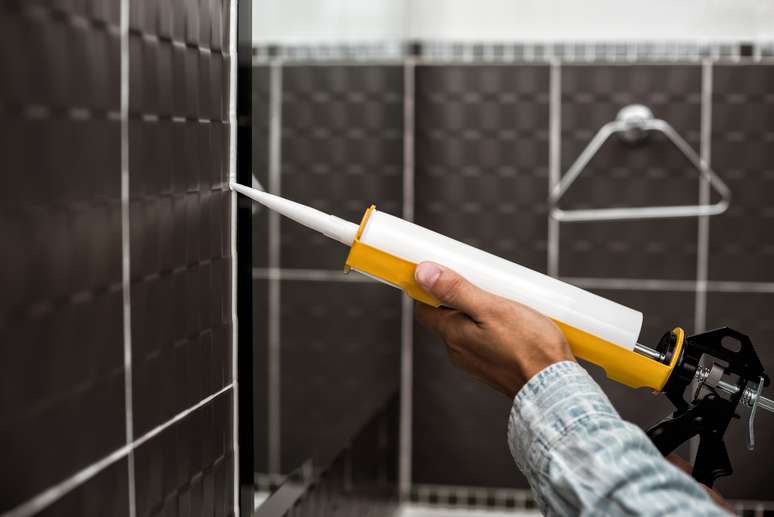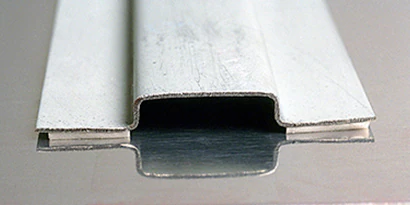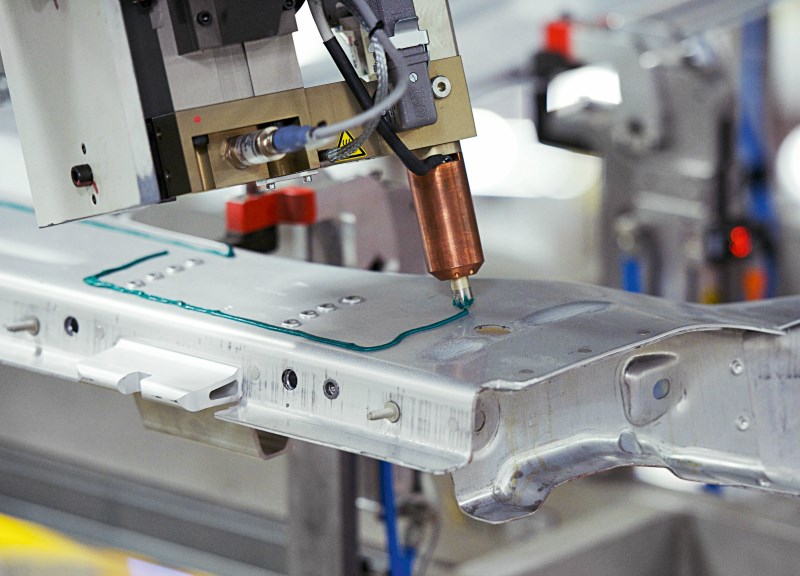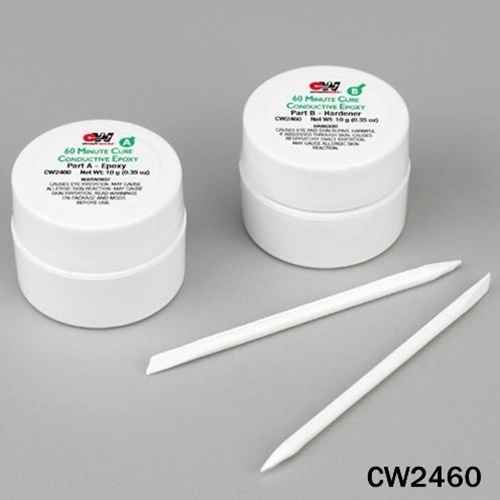What are Epoxy Adhesives?
Epoxy adhesives are composed of a resin or epoxy polymer and curing agent. These adhesives are available in both one-component and two-component package depending on types of hardener and curing method. Epoxy adhesives are the most adaptable structural adhesives and the most widely used in industrial manufacturing.
Epoxy adhesives have several options of epoxy resin types that will define their fundamental features. If heat resistance is necessary, a high temperature resistant epoxy resin is ideal, whereas a flexible epoxy resin is the best choice in case movement is possible.
Benefits of epoxy adhesives:
- Strong cohesiveness and compact chemical structure make excellent mechanical properties.
- Excellent bonding strength.
- Excellent craftsmanship: Hardly ant low molecular weight volatiles are form during cure process.
- Superb electrical performance.
- Good Stability because they are contaminant-free – which do not deteriorate over time.
- Heat resistance ability in general.
Types of epoxy adhesives
Epoxy adhesives come in one and two-component types. Though both provide exceptionally strong connections, there are clear differences in curing process, properties, and applications.
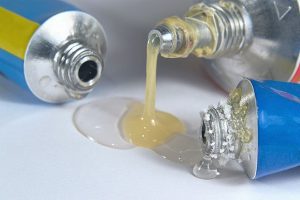

Two-component Epoxy Adhesive (2Ks)
2Ks are supplied with two separated components and will be mixed prior to application. The mixture requires extra care to ensure mixing ratio is correct and the worklife can vary from a few minutes to a few hours depending on its composition.
These adhesives cure at room temperature. Nonetheless, curing time can be shorted by adding heat or external energy such as UV radiation. Epoxy adhesives achieve the strongest bonds when the curing period is the longest.
Another advantage of two-component epoxy adhesives is greater adaptability as they can adhere to nearly any surface, from wood, metals, plastics, ceramics, to various kinds of rubber. They are also physical and chemical resistance and can stand up to temperatures around from 95 to 200°C (200 to 390℉).
One-Component Epoxy Adhesives
One-component epoxy resin adhesives are easy to use because they do not require mixing – the two components have already been mixed by manufacturer. Their paste-like consistency makes them ideal for trowel or bead extrusion application. 1Ks’ curing temperature are between 120°C and 175°C based on the formulation.
Single component adhesive efficiently fills and seals gaps, especially with metal surfaces. These adhesives can also be found as heat curing film adhesives, applied where the area is large for adhering or laminating purposes.
Typical applications
Epoxies provide applications in mostly every industrial fields: automotive, electronics, constructions, transportation, aerospaces, etc. Nevertheless, in today article, we will go through the three most typical applications: Automotive, Electronics, and Constructions.
Automotive application
Epoxy resins are widely applied in automotive industry as protective coatings, preserving vehicles, and extending products average lifespan.
Greater body protection
Epoxy-based coating technology was firstly applied in vehicle production 30 years ago with the purpose of preventing rust and corrosion on products’ body and metal parts. After being applied, coatings are cured and covered by a more visually attracting paint which not only acts as a topcoat and but also helps to protect the primer from UV damages.
In general, epoxy resins provide superior adhesion to metal and strong resistance to corrosion. Additionally, epoxy gives a thin coating layer directly onto the metal, even in every small cavity, creating a uniform texture.


Better fuel efficiency and lighter structure
With useful properties like heat resistance, adhesion, and mechanical strength, epoxies are employed in other key applications of automotive manufacturing process such as:
- Electrical insulation coils
- Electrical laminates
- Encapsulation systems for electronics
- Lightweight automotive composite parts
Environmental advantages
- Epoxies help to reduce the weight of vehicles finished part, which will decrease fuel consumption, operating costs, and the level emissions as well.
- As epoxy-based paint directly applied to the metal, air emissions and waste will dwindle during the production process.
- In addition, by increasing vehicles lifespan, energy and raw materials are saved – which improves vehicle’s carbon footprint.
Electronics application
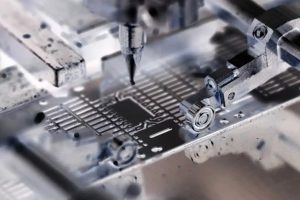

The applications of epoxy resins in electronics industry have been soaring sharply recently. Epoxies are easy to use thanks to their formulations and variable liquid or solid state. Additional advantages include the absence of volatile organic compounds, no need to sag the coating to make it thicker, less hazardous waste and a wide range of specialty effects further strengthened by the development of new materials and technologies.
Electric insulators
Thanks to their properties as electric insulators, epoxies become a crucial component in internal printed circuit boards, transistors, circuits, LED’s, solar panels and many other devices. Without epoxies, essential everyday items such as smartphones or modern medical equipment like MRI scans would not exist.
Greater & Safer Energy supply
Epoxy resins help to lower electrical transmission and distribution system cost, which increase reliability and efficiency of energy supply. Their properties as mentioned above provide operational better flexibility and durability for products that work at high voltage levels.
Construction application
Epoxy resins are important components in the manufacture of adhesives, primers and sealants, coatings, plastics, paints, flooring, and other materials in building and construction applications.
Strong adhesives bonding various substrates
Epoxy adhesives are considered high-performance adhesives. Their applications are in the making laminated woods for decks, walls, roofs and other building applications. Also, they are widely used in products that require excellent bonding strength to a variety of substrates, like concrete, wood, metal, glass, stone, and some plastics. Epoxy-based adhesives are more high-temperature and chemical-resistant than most glues.
Coatings and Sealants
- Outdoor coatings: Epoxy resins are used as durable, high-gloss outdoor coatings and sealants for concrete floors and other protective coatings used in industrial manufacturing.
- Floor coatings: Epoxy resins are used in the process of building high performance and decorative flooring like terrazzo flooring, chip flooring, or colored aggregate flooring. These types of flooring have many colors and decorative patterns created by the combination contrasting vinyl chips/ or colored quartz aggregate and epoxy layer on the top. Epoxy flooring can also be added with paint chips or other additives like polymer grit to create an anti-skid texture.
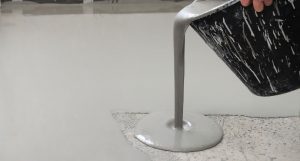

Countertop & Surface coatings
The blend of epoxies, recycled glass, and other commonly discarded materials are now the making of sustainable architectural surfaces as well as countertops. With this technology, surfaces and countertops can be composed with 90% is recycled materials – which not only environment friendly but also ensures quality & visuality.
Water-based paints
Water-based epoxy paints dry rapidly while provide a tough protective coating. Particularly, their low volatility and clean-up with water characteristics lessen the risk of exposure or flammability for factory cast iron, cast steel, and cast aluminum applications.








